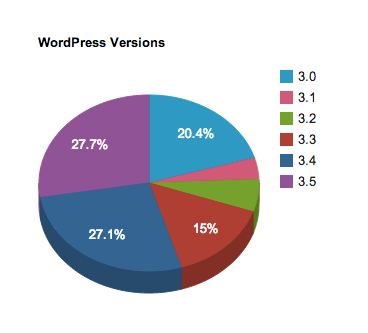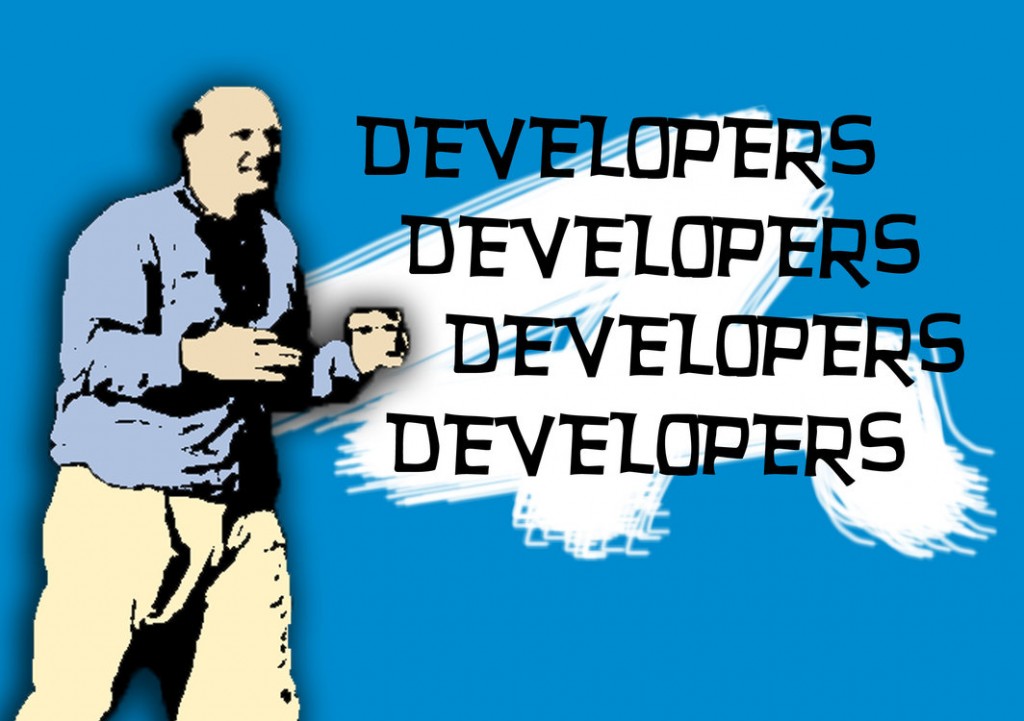For the past few weeks, I’ve been talking about the decision to migrate away from the WordPress Plugins Repository and move back to the premium model similar to what I once offered. The truth is, this is going to introduce a bit of WordPress fragmentation which may not be a good thing.
If you’re just catching up on this, here are a few articles about the migration:
- Open Source Ethics: Profiting From Contributions
- My Problems with the WordPress Plugins Repository
- Finding The Right WordPress Support System
I’ve enjoyed the discussion around all of this, but there’s one problem that is introduced when developers opt to move away from the central WordPress repository.
It introduces fragmentation into the market.
My Stance on Fragmentation

Fragmentation. It basically looks like this (but less blue :).
Before getting into the challenges that fragmentation introduces, I wanted to share my stance on it:
Simply put, it depends.
I think some are completely fine with fragmentation; others, not so much, but the truth of the matter is that fragmentation yields both positives and negatives.
Case in point:
- In the Android marketplace, fragmentation introduces a significant challenge to users as well as developers because the average user isn’t really sure which version they’re using (all vendor customizations aside) yet all apps are listed in Google Play. Compatibility, upgrades, and features are major issues.
- In contrast, the iOS marketplace isn’t nearly as fragmented because, generally, every iDevice is running the same operating system. This makes for a consistent experience for users, developers, and vendors.
If that sounds as if I’m pro iOS, I’m not. I’m trying to stay agnostic a simply share the facts about two marketplaces each of which are fragmented differently and demonstrate that fragmentation can yield different results.
Perhaps it’s unfair to try to draw an analogy to general case of fragmentation by looking at a single market, but I think there are principles that are represented in the mobile device market that are applicable elsewhere.
And here’s what it is: Fragmentation can yield innovation because newer versions provide developers with new tools which, in turn, introduce a set of new utilities to users.
Lack of fragmentation may stifle innovation, at least to a degree, because you’re waiting for the latest and greatest to come down the pipeline and it could be a significant amount of time before that happens.
Simply put, innovation may take longer.
WordPress Fragmentation: Versions
But how does all of this fragmentation come into play in the WordPress market and, more specifically, for theme and/or plugin developers or who looking to segment themselves away from the core repositories?
First, note that there’s a couple of ways to look at how WordPress is fragmented. It’s not just in the marketplaces.

Look at how many are still on 3.0 alone.
For the most part, this may not matter. Though I don’t think that you can force users to upgrade, there are obvious benefits for doing so for both users and developers.
First, you have to acknowledge that WordPress is fragmented in and of itself. According to the latest data, there’s a relatively wide variety of versions of WordPress being used.
Having multiple versions of WordPress available somewhat forces the hand of the developer when creating themes and plugins to decide which versions they are going to support because the API does change from version to version.
Now, Back To Plugins
Finally, the crux of the problem for plugins can be broken down into two areas – the user and the developer.
For The User

Tron fights for the user.
The WordPress Plugin Repository is a fantastic resource for users. It’s a centralized place that they can search, download, and install plugins to help introduce functionality into their blogs.
It has it’s obvious set of challenges for developers, but you have to admit that it’s an awesome place if you’re a user.
Developers, Developers, Developers!

Developers! So much obligation for this.
Introducing your own marketplace – whether you’re a larger company or a single developer – is making the end user’s experience more challenging because they no longer have a single place to go.
We’re faced with the challenge of making people aware of our site and our products, and users are forced to move from a centralized location not only to download the product, but to receive support.
This doesn’t necessarily mean that the experience is bad – we’ve obviously discussed the challenges of supporting free plugins – but we do have our work cut out for us: Aside from working to market ourselves and our work, we also need to make sure the user’s have the most pleasing experience that they can when interfacing with us or our teams rather than the WordPress plugin repository.
“And Your Point Is…?”
All that say that I definitely see the merits and advantages of having the centralized repository. And I’m not someone who is staunchly against the repository, either. Obviously, I think it’s great for the users.
But as someone who is attempting to provide products to other users via that channel, it has its shortcomings.
Ultimately, I urge anyone who is moving away from the marketplace to give some seriously deep thought into why you’re doing it, how you’re going to do it, and what kind of value you’re going to be bringing in doing so.
Truth be told, that’s why I’m taking my sweet time in doing so.



Leave a Reply
You must be logged in to post a comment.